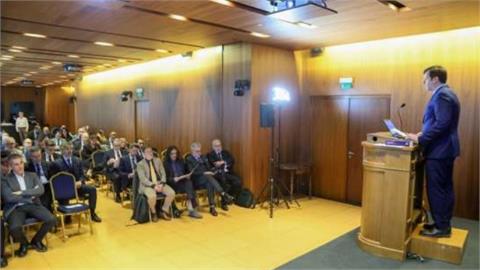Representatives from almost every country in the world reached an agreement on the final text of a new global deal at the COP28 conference, which took place in Dubai between November 30 and December 13, 2023, calling for a transition from fossil fuels to cleaner energy sources
Representatives from almost every country in the world reached an agreement on the final text of a new global deal at the COP28 conference, which took place in Dubai between November 30 and December 13, 2023, calling for a transition from fossil fuels to cleaner energy sources. The document was immediately declared historic by climate activist, as it signifies the start of the process towards the end of fossil fuel use. Environmental organizations highlighted that this is as an important step towards decarbonization, but they pointed out that the document contains numerous concerning formulations, while the softened terminology on energy transition allows countries to continue using fossil fuels as before. The consensus of the COP28 conference aims to achieve net zero greenhouse gas emissions no later than 2050 and halt global warming below the 1.5 degrees Celsius limit until the end of the century.
However, representatives from the oil and gas industry stressed the fact that the final COP28 communique did not actually commit the signatories to abandoning fossil fuels. For the first time since the inaugural conference in Berlin in 1995, fossil fuels took center stage in the final text of the global climate conference. Coal, oil, and gas were specifically mentioned as energy sources that need to be replaced with cleaner alternatives. Representatives from the fossil fuel industry and the Organization of Petroleum Exporting Countries (OPEC) lobbied against such a shift, leading to the conference being extended for 36 hours to reach compromise on this crucial issue.
The current Monthly Analysis, which is available here, sheds light on the successes and failures of COP28, highlighting the major repercussions on the global energy industry, assessing the likelihood of implementation in a number of vital areas and identifying the statements that could be open to multiple interpretations and therefore to slippage or complete lack of action.
The COP process now moves onto Baku in Azerbaijan for COP29 and Belem in Brazil for COP30. Encouragingly the organisers of all three conferences are now coordinating to ensure continuity of the debate at this critical time. Questions about the efficacy of the COP process and its need for consensus agreement have re-emerged at COP28 but are of little real consequence given the urgency of the actions required. The process is fixed, and the Parties must now focus both on the new finance pledges for the 2025-2030 period, which need to be agreed in 2024, and the production of more ambitious “ratcheted” NDCs (Nationally Determined Contribution) for presentation at COP30. As the Global Stocktake revealed, the world is well off target to meet climate targets for 2050. Arguably 1.5oC is no longer within reach, but this does not mean that countries should scale down their efforts to accelerate the energy transition and minimise any overshoot by 2030.




